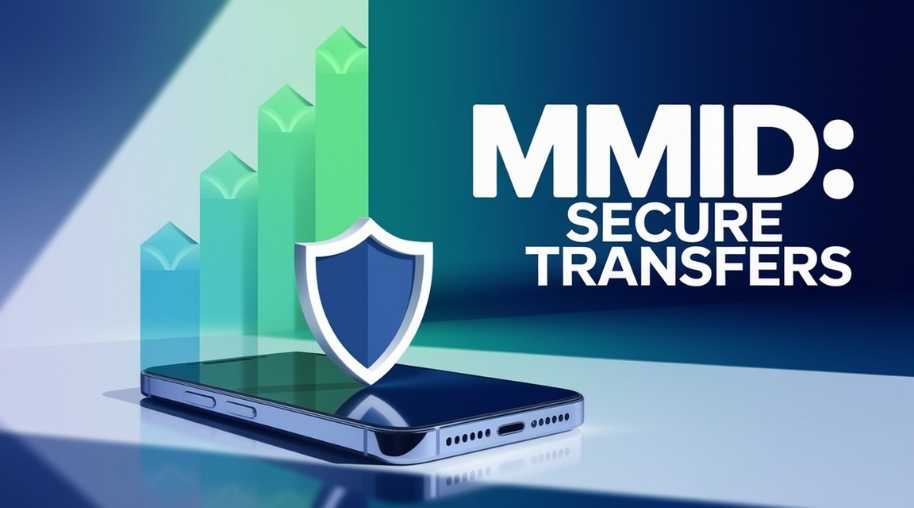MMID Full Form-Mobile Money Identifier
by Shashi Gaherwar
0 2239
Understanding the Mobile Money Identifier (MMID) in Digital Banking
With the rapid advancement of digital banking, mobile payments have become an integral part of everyday financial transactions. One crucial component facilitating seamless and secure mobile banking is the Mobile Money Identifier (MMID). This unique identification number plays a key role in electronic fund transfers, ensuring that users can send and receive money without sharing sensitive banking details.
This article explores the concept of MMID, its functionality, benefits, challenges, and its future in the digital financial ecosystem.

What is a Mobile Money Identifier (MMID)?
A Mobile Money Identifier (MMID) is a unique seven-digit number issued by banks to customers who wish to use mobile banking services for fund transfers. MMID is linked to a customer’s mobile number and bank account, allowing secure transactions through digital platforms such as Unified Payment Interfaces (UPI), Immediate Payment Services (IMPS), and other online banking systems.
MMID is essential for hassle-free money transfers, ensuring financial transactions are executed with minimal risk and enhanced security.
How Does MMID Work?
MMID functions as an identifier that links a mobile banking user to their bank account. Here's how it works:
- Issuance: Customers request an MMID from their bank, which generates a unique code linked to their account.
- Transaction Initiation: When sending money via mobile banking, the sender inputs the recipient’s MMID and registered mobile number.
- Verification: The banking system verifies the MMID and mobile number to ensure the correct recipient details.
- Funds Transfer: Once verified, the amount is transferred securely to the recipient’s account.
This process eliminates the need to share sensitive banking information, making transactions more secure and efficient.
Key Features of MMID
- Uniqueness: Each MMID is unique to an account-holder and linked to their bank.
- Security: Reduces the risk of fraud by eliminating the need to share full account details.
- Convenience: Enables quick mobile transactions without requiring complex banking credentials.
- Interoperability: Works across different banking systems, ensuring seamless fund transfers.
- Multiple MMIDs: Customers with multiple bank accounts can have separate MMIDs for each.
Benefits of MMID in Digital Transactions
- Enhanced Security: MMID adds an extra layer of protection by ensuring transactions occur only between verified users.
- Simplified Transactions: Users can send and receive money without remembering long bank account details.
- Quick and Hassle-Free Payments: Transactions through MMID are instant, reducing processing time.
- Improved Financial Inclusion: Enables unbanked and underbanked individuals to access digital financial services easily.
- Reduces Banking Errors: Eliminates common mistakes associated with entering incorrect account numbers.
How to Get an MMID?
- Register for Mobile Banking: Users need to activate mobile banking services through their bank.
- Request MMID: Banks provide MMIDs via SMS, banking apps, or by visiting a branch.
- Use for Transactions: Customers can use their MMID along with their registered mobile number to initiate transactions.
- Multiple MMIDs for Multiple Accounts: If a user holds multiple accounts, they can request separate MMIDs for each.
Challenges in Using MMID
- Limited Awareness: Many users are still unaware of MMID and its benefits, leading to underutilization.
- Technical Glitches: Occasional network issues or banking system downtimes may impact transactions.
- Dependence on Mobile Networks: Requires a stable mobile connection for successful fund transfers.
- Fraud Risks: Although MMID is secure, users must remain vigilant against phishing and fraudulent activities.
Future of MMID and Mobile Banking
As digital payments continue to evolve, the future of MMID looks promising. Emerging trends that will shape the future of MMID include:
- Integration with Blockchain Technology: Enhancing security and transparency in mobile transactions.
- AI-Powered Fraud Detection: Leveraging artificial intelligence to detect and prevent fraudulent transactions.
- Expansion to Global Digital Payments: Potential cross-border usage for seamless international transactions.
- 5G-Enabled Mobile Banking: Faster and more reliable mobile transactions with the rise of 5G networks.
Mobile Money Identifier (MMID) has revolutionized digital transactions by providing a secure, convenient, and efficient way to send and receive money via mobile banking. As financial technology continues to advance, MMID will play an increasingly vital role in shaping the future of cashless economies.
By raising awareness and enhancing security measures, MMID can further drive financial inclusion and ensure safer digital transactions for users worldwide.
Further Learning Resources
If you’re passionate about building a successful blogging website, check out this helpful guide at Coding Tag – How to Start a Successful Blog. It offers practical steps and expert tips to kickstart your blogging journey!
For dedicated UPSC exam preparation, we highly recommend visiting www.iasmania.com. It offers well-structured resources, current affairs, and subject-wise notes tailored specifically for aspirants. Start your journey today!

Share:









Comments
Waiting for your comments